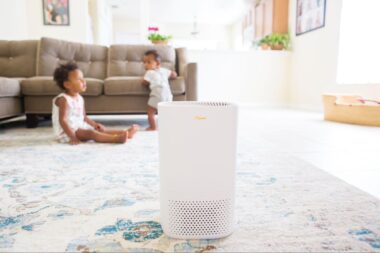Winter can be a tough season for little ones, with cold temperatures, dry air, and the increased spread of seasonal illnesses. While it’s impossible to shield your baby from every germ, there are plenty of practical steps you can take to reduce the risk of them getting sick. This guide will walk you through simple strategies to keep your baby healthy, comfortable, and safe this winter.

Key Tips for a Healthy Winter
1. Practice Proper Hand Hygiene
Frequent handwashing is a powerful tool to prevent the spread of germs. Make sure everyone in your household, including older siblings, washes their hands with soap and water for at least 20 seconds—especially before touching the baby, after coughing or sneezing, and after returning home. If soap and water aren’t available, use a baby-safe hand sanitizer when appropriate. And don’t forget to clean your baby’s hands too, especially before feeding or after playtime.
2. Keep Vaccinations Up to Date
Vaccinations are your baby’s best defense against illnesses like the flu. Speak with your pediatrician to ensure your baby is up to date on their immunizations, including any recommended seasonal vaccines. For babies six months or older, the flu vaccine is an important step in protecting them from this common winter illness.

3. Dress Your Baby in Layers
Cold weather can be unpredictable, which is why dressing your baby in layers is key. Use breathable fabrics like cotton for base layers, followed by warmer materials like fleece or wool for outer layers. Add or remove layers as needed to regulate their temperature. A warm hat and mittens are must-haves when venturing outdoors to keep extremities cozy.
4. Limit Exposure to Germs
Crowded places, like malls or public events, can be breeding grounds for germs during winter. Try to avoid these environments when possible, especially if your baby is very young. Likewise, keep your baby away from anyone who is visibly sick. Politely ask visitors who aren’t feeling well to reschedule their visit for a healthier time.

5. Maintain a Clean and Healthy Home
Babies love to explore, and their toys, pacifiers, and surfaces they touch can quickly harbor bacteria and viruses. Regularly disinfect commonly touched items like toys, high chair trays, and doorknobs using baby-safe cleaning products. Make it a routine to clean these items, especially after hosting guests or seasonal gatherings. If you do have gatherings in your own home, run an air purifier in high traffic areas to help reduce airborne germs.
6. Rely on Breastfeeding if Possible
If you’re breastfeeding, know that you’re giving your baby more than just nourishment—your breast milk contains antibodies that can help protect against infections. If breastfeeding isn’t an option, consult your pediatrician about other ways to support your baby’s immune system with proper nutrition and care.

7. Use a Humidifier
Winter air can be dry, which can make your baby’s nasal passages and airways more vulnerable to viruses. A humidifier helps keep the air moist, reducing the likelihood of respiratory discomfort. Be sure to clean your humidifier regularly to prevent mold or bacteria buildup.
Building a Healthy Routine
Integrating these preventative measures into your everyday routine doesn’t have to be complicated:
- Schedule daily handwashing before feedings and after outdoor play.
- Establish a regular cleaning schedule for toys and high-touch surfaces.
- Dress your baby appropriately before stepping out, even for quick errands.
- Use your baby’s nap schedule as a chance to run the humidifier and replenish the air quality in their space.
With consistency, these habits will become second nature and support your baby’s health all season long.

Understanding Winter Illnesses
Being aware of common winter illnesses can help you recognize symptoms early and take appropriate action. Here are a few to watch out for:
- Colds: Runny nose, mild fever, and coughing are common symptoms. Provide plenty of fluids and rest.
- Flu: Symptoms include high fever, body aches, and fatigue. Contact your doctor if you notice these signs.
- RSV (Respiratory Syncytial Virus): Watch for labored breathing, persistent coughing, or wheezing, and seek medical attention if symptoms worsen.
- Ear Infections: Difficulty sleeping, tugging at the ears, or unusual fussiness could indicate an issue.
If you’re ever uncertain, it’s better to consult your pediatrician for guidance. Early treatment can make all the difference.
Take Action at the First Sign of Illness
Despite your best efforts, your baby may still catch a winter illness. It’s important to act quickly when you suspect your baby is getting sick. Here are some steps to take:
- Monitor their temperature regularly with a reliable thermometer.
- Keep them hydrated by offering more frequent breastfeeding or formula feedings.
- Use saline drops and a bulb syringe to clear congestion from their nose if they have trouble breathing.
- Consult with your pediatrician for specific guidelines on how to care for your sick baby.
Remember, trust your instincts and seek medical attention immediately if you sense something isn’t right with your baby’s health.
Stay Ahead of Winter Illnesses
By following these tips, you can significantly reduce your baby’s chances of getting sick this winter. Remember that it’s all about creating healthy habits for the entire family—every small effort counts.